General description
Antiserum is produced in rabbit using purified human fibronectin as the immunogen. Affinity isolated antibody is obtained from antiserum by immunospecific purification which removes essentially all rabbit serum proteins, including immunoglobulins, which do not specifically bind to human fibronectin. The antiserum is determined to be immunospecific for human fibronectin by immunofluorescent labeling of human fibroblast cell cultures, ELISA and immunoblotting. In immunoblotting, a specific band of fibronectin at 220 kDa is observed (another band at 94 kDa may be also be present) using human fibronectin. When used in immunoelectrophoresis, the antibody shows 1-2 arcs of precipitation versus normal human plasma. This product may be used for immunohistochemical localization of fibronectin in normal, inflamed and neoplastic tissues, for detection of fibronectin on cultured cells and structure and function studies of fibronectins in human and animal body fluids, tissues and cells. Affinity isolated antibody to human fibronectin can be used for immunofluorescent and immunoperoxidase staining of cultured cells, frozen sections and formalin fixed, paraffin-embedded tissues. Other fixatives, e.g. methacarn and ethanol, may also be used.
Fibronectin (FN) is composed of two nearly identical disulfide-bound polypeptides of molecular weight 220 kDa. Cellular fibronectin is structurally and antigenically similar to cold insoluble globulin from plasma, therefore polyclonal antibodies to either form usually cross-react. Careful analysis of the fibronectin molecule indicates that it contains several functionally and structurally distinct domains, which may bind to cell surfaces, collagen, fibrinogen or fibrin, complement, glycosaminoglycans, proteoglycans and heparin. Fibronectin 1 is encoded by the gene mapped to human chromosome 2q35.
Fibronectin (FN) is a multifunctional, extracellular matrix glycoprotein. Cellular fibronectin exists as dimeric or cross-linked multimeric forms, made up of fibroblasts, epithelial and other cell types. The dimer form composed of two nearly identical ~250 kDa subunits linked covalently to the C-termini by a pair of disulfide bonds. FN is present as dimeric form in plasma and secreted by hepatocytes.
Specificity
The product shows no cross-reaction with laminin, vitronectin, collagen type IV, or chondroitin sulfate types A, B and C using a dot blot immunoassay.
Immunogen
Fibronectin isolated from human plasma
Application
Anti-Fibronectin antibody is suitable for
- immunohistochemistry (IHC) analysis to study the activity of pancreatic stellate cells in chronic pancreatitis
- antibody blocking assays of bacterial cells to study the activity of fibronectin in the Yersinia pestis binding to host cells and Yop delivery
- staining of endothelial cells as primary antibody
- cell adhesion assays to study the effect of anti-human fibronectin antibodies on adhesion to endothelial cells
- immunoprecipitation and western blot analysis of NF-κB dependent mammary tumorigenesis study
- immunofluorescence staining to study the correlation between zyxin tails and fibrillar adhesions
- immunoblotting to study the expression levels of the pancreatic stellate cells (PSC) markers glial fibrillary acidic protein (GFAP), α-smooth muscle actin (α-SMA), collagen type I, and fibronectin in whole cell lysates
- ELISA of fibronectin secretion
- microarray analysis.
Biochem/physiol Actions
Fibronectin (FN) plays important roles in cell adhesion, migration, growth and differentiation. It has capacity to bind various functionally important domains such as heparin, collagen/gelatin, and fibrin. It also stimulates human non-small cell lung carcinoma.
Numerous studies have shown that fibronectin may enhance cell adhesion and spreading and affect the routes of cell migration both in vivo and in culture. Moreover, it has been shown that upon malignant transformation many cells lose most of their surface bound fibronectin. Fibronectin has been shown to also play a role in cellular morphology, cytoskeletal organization, phagocytosis, hemostasis, embryonic differentiation and wound repair. Fibronectin is produced by a wide variety of epithelial and mesenchymal cells in vitro including: fibroblasts, chondrocytes, myoblasts, Schwann cells, macrophages, hepatocytes and intestinal epithelial cells. Cellular fibronectin is present in many tissues including spleen, lymph node, tonsil, blood vessel walls, liver, kidney, muscle, skin, brain and peripheral nerves. It is found in basement membranes and in loose connective tissue stroma. It is also present in platelet α-granules and is expressed on the platelet surface after activation.
Physical form
Solution in 0.01M phosphate buffered saline, pH 7.4 containing 1% BSA and 15 mM sodium azide
Storage and Stability
For continuous use, store at 2-8°C for up to one month. For extended storage, the solution may be frozen in working aliquots. Repeated freezing and thawing, or storage in "frost-free" freezers, is not recommended. If slight turbidity occurs upon prolonged storage, clarify the solution by centrifugation before use.
Disclaimer
Unless otherwise stated in our catalog or other company documentation accompanying the product(s), our products are intended for research use only and are not to be used for any other purpose, which includes but is not limited to, unauthorized commercial uses, in vitro diagnostic uses, ex vivo or in vivo therapeutic uses or any type of consumption or application to humans or animals.
Shipping Information:
Dry Ice Surcharge & Ice Pack Shipments: $40
More Information: https://cenmed.com/shipping-returns
- UPC:
- 41181525
- Condition:
- New
- Availability:
- 3-5 Days
- Weight:
- 1.00 Ounces
- HazmatClass:
- No
- MPN:
- F3648-.2ML
- Temperature Control Device:
- Yes












